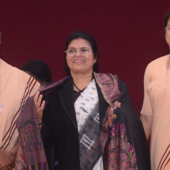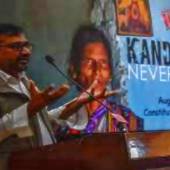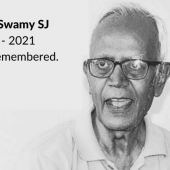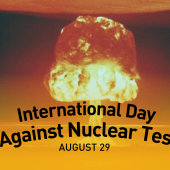International Day for the Right to the Truth Concerning Gross Human Rights Violations and the Dignity of Victims

The United Nations (UN) has made March 24 the International Day of the Right to the Truth concerning Gross Human Rights Violations and the Dignity of Victims simultaneously.
What is the right to the truth? The UN defines the right to the facts as grave human rights violations and humanitarian law violations. This definition includes the relatives of those subjected to summary executions, enforced disappearances, missing persons, kidnappings, and torture, who demand to know what happened to them.
A right to the truth "means that you should know the truth about what happened, who was involved, and what happened before and after the violations," cited from the UN website.
People worldwide remember and honor people who have violated their rights in evil and long-term ways. It's also a way to show how important it is for people to be able to find out the truth and get justice.
The event's history began on December 21, 2010, when the United Nations General Assembly designated March 24 as the International Day for the Right to Truth about Gross Human Rights Violations and the Dignity of Victims for the first time.
This date was chosen in memory of El Salvador's Archbishop, Oscar Arnulfo Romero, who was assassinated for speaking out against human rights violations.
The UN declares that the public has a right to know the truth about what occurred, who was involved, and why. This includes being aware of the violations' circumstances and reasons as well as the individuals involved.
It's a day to honor the memory of people who gross and systematic human rights violations have killed and to show how important it is to have the right to truth and justice.
It also aims to pay tribute to those who have devoted their lives to and lost their lives in the struggle to promote and protect human rights for all.
The UN website reveals that the particular objective of the day is to "recognize the important work and values of Archbishop Oscar Arnulfo Romero of El Salvador, who was assassinated on March 24, 1980, after denouncing violations of the human rights of the most vulnerable populations and defending the principles of protecting lives, promoting human dignity, and opposition to all forms of violence.”
In his message for 2022’s International Day for the Right to the Truth Concerning Gross Human Rights Violations and the Dignity of Victims, António Guterres, UN secretary-general, says:
“The International Day for the Right to the Truth Concerning Gross Human Rights Violations and the Dignity of Victims reminds us that truth is a powerful light. A light that shines on violations that perpetrators would prefer to remain hidden.”
“A light that reveals a path towards peace, justice, and reparation for victims, and compels countries to meet their obligations under international law,” said Guterres.
He urged that in honor of this momentous day, we reaffirm our commitment to exposing these gross violations and helping societies heal their differences, reconcile in peace, and come together to support and protect the health, safety, dignity, and opportunity of every person in the world.
He continues, "Those who would violate human rights—those who would harm, control, control, and even kill—are emboldened to act with impunity."
He reminds us that "we must heed the words of Monsignor Oscar Romero, who was murdered on this day 42 years ago for speaking out against injustice and inequality in El Salvador."
Guterres encourages us that "the ones who have a voice must speak for those who are voiceless."
He concludes by saying, "May his courageous fight for the truth illuminates our work to promote and protect human rights worldwide."
Radio Veritas Asia (RVA), a media platform of the Catholic Church, aims to share Christ. RVA started in 1969 as a continental Catholic radio station to serve Asian countries in their respective local language, thus earning the tag “the Voice of Asian Christianity.” Responding to the emerging context, RVA embraced media platforms to connect with the global Asian audience via its 21 language websites and various social media platforms.
















- Reply
Permalink